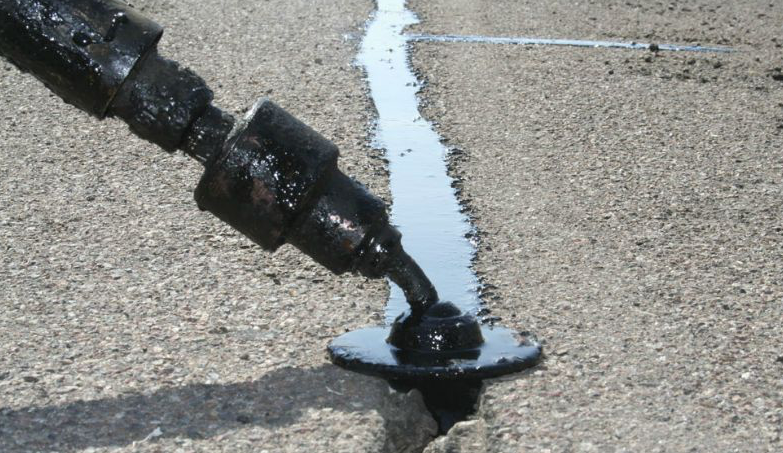Lengthen Pavement Life-span: Ingenious Cold Mix Asphalt Sealing
Lengthen Pavement Life-span: Ingenious Cold Mix Asphalt Sealing
Blog Article
Cold Mix Asphalt Vs. Hot Mix Asphalt: Which Is Right for You?

Make-up Distinctions
Cold mix and hot mix asphalts differ significantly in their composition, with distinctive features that influence their efficiency and applications. Cold mix asphalt is created by emulsifying the asphalt binder with water and an emulsifying agent prior to mixing it with accumulation. This approach enables the asphalt to be convenient at lower temperature levels, making it suitable for short-lived repairs and for usage in cooler weather. Hot mix asphalt, on the other hand, is made at high temperature levels, commonly between 300-350 ° F, which helps to attain far better compaction and an extra resilient last item. The warm mix asphalt production procedure includes heating up the accumulation and asphalt binder independently prior to combining them at the asphalt plant.
Furthermore, chilly mix asphalt has a tendency to be much less dense and much more flexible than warm mix asphalt. This flexibility makes it much better suited for areas with greater degrees of activity, such as driveways or roadways with heavy traffic. In contrast, warm mix asphalt is known for its high durability and resistance to rutting and splitting, making it a favored selection for freeways and high-traffic roadways where longevity is vital.
Setup Process Variations
The procedure of setting up cold mix and warm mix asphalt shows significant differences in their demands and treatments. In comparison, hot mix asphalt demands a more sophisticated installment procedure. Due to the heating requirements, warm mix asphalt installations are commonly carried out by specialists with customized tools, guaranteeing a much more structurally sound and permanent result.
Longevity and Durability Elements
When thinking about asphalt options, longevity and durability are essential elements to examine for long-term pavement performance. Warm mix asphalt (HMA) is understood for its extraordinary longevity and longevity. The heats throughout the laying and mixing process enable for better compaction, causing a denser and more powerful sidewalk structure. This leads to HMA being much more immune to rush hour lots, severe climate condition, and the results of aging compared to chilly mix click now asphalt (CMA)
In regards to durability, HMA typically outshines CMA as a result of its superior stamina and resistance residential properties. HMA sidewalks have a longer solution life, requiring less frequent fixings and maintenance, which can convert to cost financial savings in the future. Furthermore, HMA sidewalks are extra quickly customizable to fulfill specific task needs, further enhancing their toughness.
Expense Considerations
Considering the financial ramifications is a critical aspect when evaluating the selection between hot mix asphalt (HMA) and chilly mix asphalt (CMA) for pavement projects. While the preliminary expense of warm mix asphalt is usually higher than that of cool mix asphalt, HMA often offers a much more cost-efficient solution in the long run due to its premium resilience and longevity.
In enhancement to product costs, it's necessary to think about the costs linked with installation and upkeep when contrasting HMA and CMA. Inevitably, the decision in between HMA and CMA ought to take into account not just the first expense yet additionally the long-term economic ramifications to determine the most economical choice for the specific sidewalk task.
Environmental Influence Comparison
Comparison of the ecological influences in between hot mix asphalt (HMA) and cold mix asphalt (CMA) discloses distinct distinctions in sustainability methods. HMA production requires high temperature levels, leading to raised energy intake and greenhouse gas exhausts.
Furthermore, making use of CMA frequently includes reusing existing asphalt sidewalk, promoting source conservation and decreasing the quantity of waste sent out to landfills. This recycling facet even more enhances the sustainability of CMA compared to HMA. On the whole, when considering the environmental effect, CMA emerges as an extra eco lasting option because of its lower power needs, reduced emissions, and the possibility for recycling existing materials. By selecting CMA over HMA, roadway construction tasks can contribute favorably to environmental conservation initiatives.
Conclusion
Finally, the option between cold mix asphalt (CMA) and hot mix asphalt (HMA) relies on different elements such as make-up, installation process, durability, durability, price, and environmental influence. angle parking. While CMA supplies a fast imp source and cost-effective service for minor repair work, HMA makes certain exceptional longevity and durability for heavy website traffic locations. Consider these elements meticulously to identify which sort of asphalt is the appropriate selection for your paving requires

Taking into consideration the economic implications is a critical aspect when reviewing the selection between warm mix asphalt (HMA) and cool mix asphalt (CMA) for pavement projects. While the first cost of hot mix asphalt is commonly higher than that of chilly mix asphalt, HMA commonly provides a much more economical solution in the long run due to its superior longevity and longevity. angle parking.Contrast of the ecological influences between warm mix asphalt (HMA) and chilly mix asphalt (CMA) reveals distinct differences in sustainability methods.In verdict, the selection in between cold mix asphalt (CMA) and hot mix asphalt (HMA) depends on numerous elements such as structure, setup procedure, longevity, longevity, price, and ecological influence
Report this page